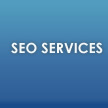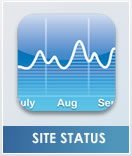|
There are two types of search engine optimisation SEO techniques
that will determine your website's standing with the search engines.
They are, On-Page SEO and Off-Page SEO. On Page SEO is what can be
done on website pages to maximise search engines performance for
target keywords in direct relation to the on page content.
It basically refers to the text and formatting of TEXTUAL content on
web site pages. In simple terms it refers to the editing and
optimisation of pages and content so that search engines can find
your web page when a user searches for a web site on a particular
topic using keywords and keyword phrases.
On page SEO in addition to looking very closely at the nature and
quality of content, particularly copy also pays close attention to
the structure of the site. Search engines apply great weight to
structure and they like to know what's important about each
site. Semantically Relevant information needs to be higher up in the
site hierarchy and each page should use. Focus is drawn to:
· The topicality, depth, detail and breadth of the information
presented
· How the content is interlinked - the internal anchor text, its
source and destination. When the opportunity presents itself,
include links to related products, related articles and related
searches. Ensure the anchor text is optimised. The number and nature
of external links - how concentrated they are and which pages they
are pointed at
· Structural elements - heading, paragraph and other HTML tags that
prioritise importance.
Off page SEO is deployed in an attempt to influence how search
engines view your website and thereby control your ranking. Off page
search engine optimisation or off-page SEO basically seeks to
influence and control how the Internet portrays your website - Its
profile and reputation. Off Page SEO techniques when well applied can
result in significant search benefits and generate high MSN, Google
and Yahoo rankings, drive traffic to sites and generating strong
returns on investment.
On Page SEO has been around since the first commercial search
engines appeared on the scene in the mid 1990's. In those days the
search engines used simpler, less sophisticated technology and the
Internet was considerably smaller. Simple On Page SEO was sufficient
to differentiate sites of relevance, as the search process was
basically a comparison of on page elements with the most obviously
useful information attaining highest search engine placement.
As the Internet grew exponentially with huge amounts of new sites
and content it became necessary to apply increasingly sophisticated
methods of generating Relevant Search Results. Ever-resourceful
webmasters and SEO marketeers sought to find ways by which their
sites would appear at the top of search returns so the search
companies worked hard to keep ahead of them. Differentiating between
sites of relevance and sites that spammed them with worthless
content provides an ongoing challenge to the search engine
companies.
There are a number of generic rules of thumb that should be adopted
to rank high on the search engine result pages (SERP's) such as
well-optimized structure. Whilst many crucial ranking factors
covered by on page SEO are controllable, refineable and manageable,
in the final analysis, it's the nature of the balance between On
Page SEO and Off Page SEO that dictates Search Engine Optimisation
success.
Find the most searched keywords for the niche, genre or theme,
deploy those keywords throughout the documents then apply an
internal linking strategy based on contextual architecture. As much
high quality copy should be included as possible. Search engines are
relevance hungry and much prefer specialist and expert copy against
uninformed content.
Approach each web page on your site as (almost) standalone entity.
Every page of your web site should have a Unique Title Tag that
reflects the content on that particular page. Including keywords in
your domain/sub domain or file/folder is always advisable and strong
Search Engine Optimisation will ensure that your page/folder URL
contains your most important keyword. Ideally name your web page
files starting with the targeted keyword - keyword.htm - It doesn't
matter how awkward web page files look or sound as their not
publicly viewable it's only you and the search engine spiders get
have access to them.
Tag content with informative and compelling titles and descriptions,
make sure the alt-attributes, and the file naming conventions are
themed and optimised.
Header Tags are an important part of On page SEO and must be applied
with care. Ideal optimisation involves a single H1 tag that
containing the main keyword for that page followed with 3 - 4 H2
tags that containing the secondary keywords for that page. Little
importance is given to H3 and on.
Optimising alt text and link text and ensuring on page optimization
is razor sharp can ensure your pages keep upwardly mobile in the
SERPs (search engine result pages).
While making your web page as search engine friendly as possible
keep in mind that the copy is destined for human not spider
consumption. It needs to read well. Keyword Density is a balancing
act though it is safer and wiser to weigh the balance in favour or
readers not bots. Search engines are programmed and fashioned on
principles of ethical (by their own definition) behaviour such as
reputation and trust. Take care not to 'over optimise' pages by
stuffing them full of key words.
Not only will they read poorly but you may face the wrath of the
search engines with their engine algorithms that take into account
the keyword density of a particular page. By applying in-depth
analyses of the best returning websites for a given keyword (for
Google, speculation puts the ideal keyword density at between 1.5 -
1.8 % while MSN runs up to 3.0 %, with Yahoo somewhere between) they
can identify that something just isn't right if your website has a
keyword density of 10% or more.
This is know as spamming or spamdexing and sends up an immediate red
flag alert to the search engines. Best to also avoid hidden text,
using link farms (sites with 100+ outbound links per page),
irrelevant keywords in your link-ads, junk links, doorway pages link
churning, mirror pages, hidden inbound links and cloaking.
Such Black Hat On Page SEO could lead to search engines penalizing
sites by reducing their rankings or eliminating their listings from
their databases altogether.
While sites of course need off page optimisation and links to be
treated as an authority and to rank well by the search engines it's
important to ensure that your On Page SEO factors have been
addressed.
|



















